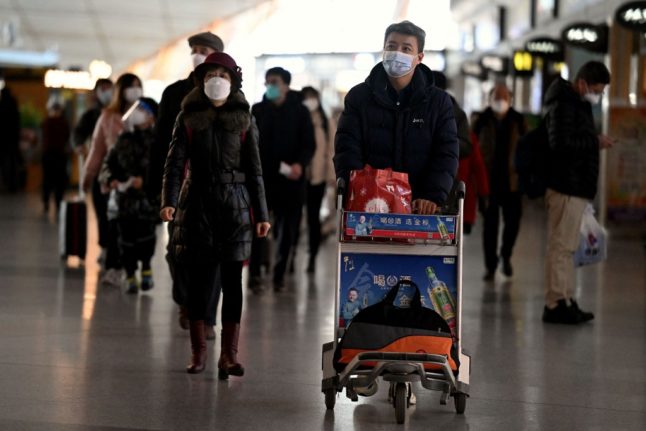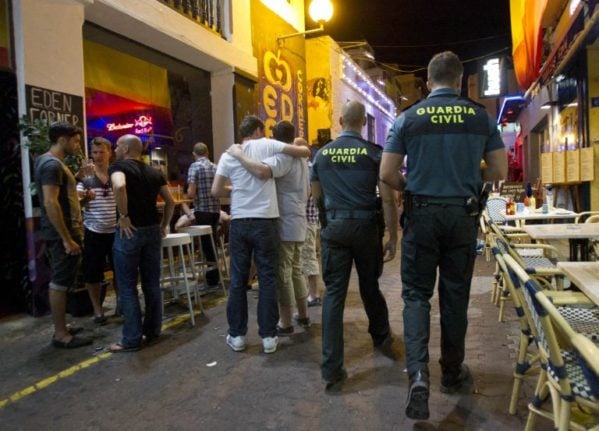Since China dropped its strict zero-Covid policy three weeks ago after almost three years in place, the number of infections in the Asian superpower has spiked, with experts in the UK estimating 9,000 deaths per day as of December 30th.
The Chinese government has since allowed Chinese nationals to travel overseas, and countries around the world are concerned about the prospect of a new variant spreading and reigniting a pandemic many epidemiologists considered to be over.
Both Italy and the United States, along with Japan, Taiwan, South Korea, India and Malaysia, will now require negative Covid-19 tests for arrivals from China, and epidemiologists worry about the intensive travel period leading up to Chinese New Year in late January.
Spain’s Health Ministry on Thursday initially said it would not impose any restrictions on passengers arriving from China, only recommending that people travelling to or from the Asian country “be fully vaccinated and maintain precautionary measures” such as mask wearing and keeping a distance from others.
But within less than 24 hours, Spanish authorities have changed their stance. Health Minister Carolina Darias on Friday December 30th said it would necessary for those travelling to Spain from China to either be fully vaccinated or show a negative Covid-19 test result to enter the country.
The restriction isn’t in force yet, but it is expected to begin on or before January 8th, which is when quarantine for arrivals in China will be lifted and a huge increase in travel among Chinese nationals is forecast.
Following an emergency meeting of the EU’s Health Security Committee on Thursday, which brings together health representatives from across the EU, member states agreed to maintain “active surveillance” of the surge in infections in China, and to explore possible joint-responses, something already demanded by the Italians.
In the words of European Commission spokesperson Daniel Ferrie, a “coordinated approach” is not off the table.
According to reports in the Spanish press, Spain’s Ministry of Health “stressed the importance of continuing the path of European coordination in health policies”, but Darias stressed that Spain’s restriction on travellers from China was “anticipating” what would happen across the bloc.
Spain’s Minister of Science, Diana Morant, said in an interview with Telecinco on Thursday that coordination is key. “One of the lessons of the pandemic is that it is better not to rush and take unilateral action, because it is not much use closing our airspace when the surrounding airspace is still open,” she said.
“It is true that we are looking at China,” she added, “but we are in constant contact with the members of the EU and coordinating the policies to make or not the most appropriate decisions at the moment in which we live.”
The only Covid-19 travel restriction in place for all travellers heading to or in Spain currently is the requirement of wearing a face mask on planes and other means of public transport, but not inside airports or other transport hubs.
Madrid’s Health Minister Enrique Ruiz Escudero on Thursday urged a more proactive approach in a letter sent to the Health Ministry, arguing that it is necessary to “evaluate public health measures… [and] intensify again controls at Spanish airports.”
He also urged Minister of Health Carolina Darias to “call an extraordinary plenary session of the Interterritorial Council of the National Health System (SNS) to address the current situation and the possible measures to be adopted”.
Murky data
In justifying the reintroduction of a required negative test, the U.S. Center for Disease Control and Prevention has pointed to both undeniable increase in infections and the lack of transparent data from China in terms of cases and deaths, as well as the the genomic sequence of strains.
This lack of transparency and doubt cast on Chinese figures has also been echoed by President of the Spanish Epidemiology Society, Óscar Zurriaga, who told Spanish outlet 20 minutos that “it cannot be ruled out at all” that transmissions in China could cause a new variant to emerge.
The situation in China “should worry us all because the information we have is very limited,” he said. “At the beginning of the pandemic Chinese science made a huge effort to share data and we obtained PCR [tests] in a very short time thanks to them, [but] now the Chinese authorities are not responding with the same transparency.”
For now, Spain waits and stays in constant contact with its European neighbours.
This comes a time when several countries, including Italy, are reporting that half of the passengers arriving from China are infected.
France and the United Kingdom have for now said they will not reintroduce Covid travel restrictions.



 Please whitelist us to continue reading.
Please whitelist us to continue reading.
Member comments